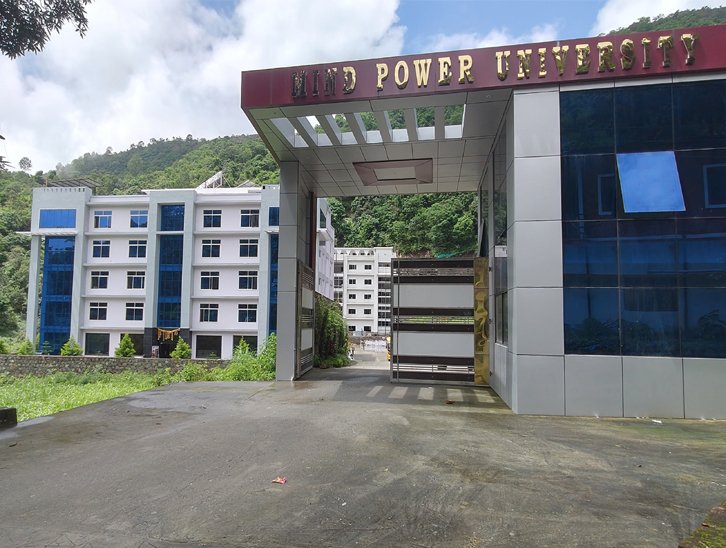 B.Tech Electrical Engineering
B.Tech Electrical Engineering
Duration
4 Years
Registration Fee
Contact on :- 8882822265
Exam Fee/ Module
Contact on :- 8882822265
- Duration : The B.Tech program in Electrical Engineering usually has a duration of four years, although the duration may vary slightly depending on the university and its academic calendar.
- Semesters : The program is typically divided into eight semesters, with each semester lasting around four to six months. Each semester consists of a set of courses or subjects related to electrical engineering, along with practical lab sessions and projects.
- Curriculum : The curriculum of B.Tech Electrical Engineering covers a wide range of topics related to electrical systems, electronics, power generation, distribution, and control. It includes both core courses and elective courses, allowing students to specialize in areas such as power systems, control systems, electronics, communication, renewable energy, and more.
- Core Courses : Core courses in B.Tech Electrical Engineering may include subjects such as Circuit Theory, Electromagnetic Field Theory, Digital Electronics, Analog Electronics, Power Systems, Electrical Machines, Control Systems, Signals and Systems, Microprocessors, Power Electronics, and Electrical Measurements.
- Electives : In addition to core courses, students may have the opportunity to choose elective courses based on their interests and career goals. Elective courses may cover specialized topics such as High Voltage Engineering, Renewable Energy Systems, Electric Drives, Robotics, Embedded Systems, VLSI Design, and Advanced Control Systems.
- Laboratory Work : B.Tech programs typically include practical laboratory sessions, where students gain hands-on experience in designing, testing, and troubleshooting electrical circuits and systems. Laboratory work complements theoretical learning and helps students develop practical skills and problem-solving abilities.
- Projects : Students are often required to undertake individual or group projects as part of their B.Tech program. Projects allow students to apply their knowledge and skills to real-world problems, conduct research, innovate, and demonstrate their understanding of electrical engineering principles.
- Internships and Industrial Training : Some B.Tech programs may include internships or industrial training opportunities, where students gain practical experience by working in industries, research labs, or engineering firms. Internships provide valuable exposure to the professional environment and may lead to job opportunities upon graduation.
- Seminar Presentations : Students may be required to deliver seminar presentations on selected topics related to electrical engineering. Seminar presentations help students improve their communication skills, research abilities, and presentation techniques.
- Final Year Project : The final year of the B.Tech program typically culminates in a major project or thesis, where students work on a comprehensive engineering project under the guidance of faculty mentors. The final year project allows students to showcase their knowledge, creativity, and problem-solving skills and serves as a capstone experience before graduation.
Overall, a B.Tech program in Electrical Engineering provides students with a comprehensive education in electrical systems and technologies, preparing them for careers in various industries such as power generation, transmission, distribution, electronics, telecommunications, automation, and renewable energy.
| Eligibility | 10+2 Science with Mathematics |
|---|
Contact on :- 8882822265
.jpg)
Electrical Engineering:
- ● Design electrical systems for power generation, transmission, and distribution.
- ● Work in utilities, energy companies, or engineering firms.
- ● Responsibilities may include designing power plants, substations, and electrical grids.
- ● Design and implement control systems for various applications, such as robotics, automation, and industrial processes.
- ● Work in industries such as manufacturing, automotive, aerospace, and energy.
- ● Responsibilities may include programming PLCs, designing HMI interfaces, and troubleshooting control systems.
- ● Design electronic circuits, components, and systems for applications like telecommunications, consumer electronics, and medical devices.
- ● Work in industries such as telecommunications, consumer electronics, healthcare, and defense.
- ● Responsibilities may include circuit design, PCB layout, component selection, and testing.
- ● Work on projects involving renewable energy sources such as solar, wind, hydroelectric, and geothermal power.
- ● Employment opportunities in renewable energy companies, engineering consultancies, and government agencies.
- ● Responsibilities may include site assessment, system design, project management, and regulatory compliance.
- ● Design electrical systems for buildings, infrastructure projects, or industrial facilities.
- ● Work in architectural firms, engineering consultancies, construction companies, or government agencies.
- ● Responsibilities may include load calculations, lighting design, power distribution, and code compliance.
Power Engineer:
Control Systems Engineer:
Electronics Engineer:
Renewable Energy Specialist:
Electrical Design Engineer:
These detailed career paths offer a broader perspective on the opportunities available to graduates in Electrical Engineering, Mechanical Engineering, Civil Engineering, and Computer Science Engineering. Each field offers a diverse range of career options, allowing graduates to pursue roles that align with their interests, skills, and career aspirations.







